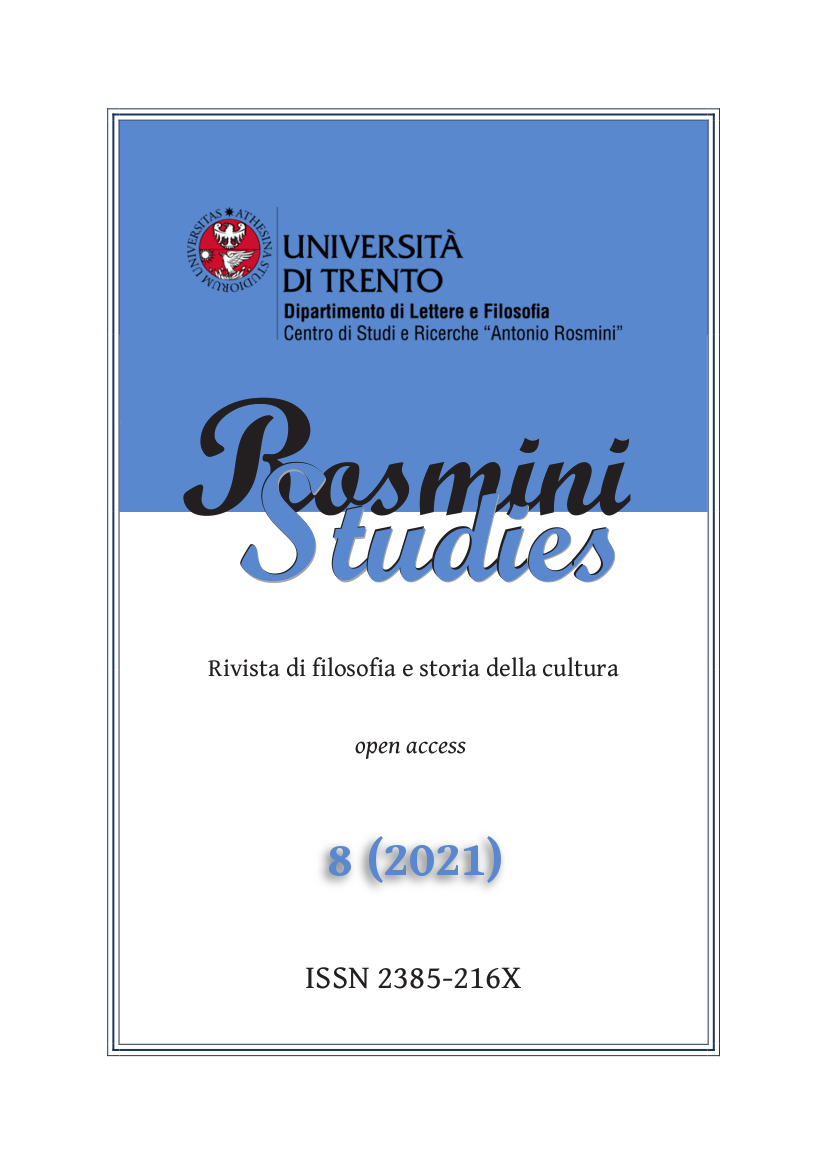Esperienza religiosa e dialogo fra le religioni
DOI:
https://doi.org/10.15168/2385-216X/265Parole chiave:
esperienza religiosa, dialogo interreligioso, filosofia delle religioniAbstract
The paper will display the condition of a true interreligious dialogue and identify it in the fact of the human experience of evil. The first part will describe the approach taken, i.e. the approach of philosophy of religions. The second part will discuss two mistakes in the development of an interreligious dialogue. The third part of the paper will clarify the concept of “universality” and develop it in the direction of a true “universalizability”. In the fourth part, the common function of every world religion will be defined as a response to the experience of evil. Finally, starting from this function, the fifth part of the paper will justify the possibility of a successful dialogue among different religions.
Riferimenti bibliografici
M. Riesebrodt, The Promise of Salvation. A Theory of Religion, trad. di S. Rendall, Chicago U.P., Chicago-London, 2010.
A. G. Nikolaev, ed., Ethical Issues in International Communication, Palgrave Macmillan, New York 2011.
R. Mordacci, La condizione neomoderna, Torino, Einaudi, 2018.
J. Hick, God has many names, Westmister John Knox Press, Louisville 1982.
S. Vescovelli, La teodicea di John Hick, Morcelliana, Brescia 2019.
L. Baccelli, Bartolomé de Las Casas. La conquista senza fondamento, Feltrinelli, Milano 2016.
Andrea Aguti, Natura umana. Un’indagine storico-concettuale, Meudon, Trieste 2010.
R. Celada Ballanti, La parabola dei tre anelli. Migrazioni e metamorfosi di un racconto, Edizioni di Storia e Letteratura, Roma 2017.
R. Celada Ballanti, Filosofia del dialogo interreligioso, Morcelliana, Brescia 2020.



